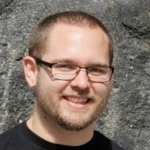Course of study
The Digital Humanities degree program at the University of Stuttgart is divided into three main areas:
- Specialization in the Digital Humanities
- Specialization in humanities disciplines
- Specialization in computer science
Within each area, both compulsory and elective subjects are offered, allowing students to tailor their studies according to their individual interests and career goals.
A detailed overview of the course of study can be found in the study plan.
1st semester
In the first semester of the course, students are taught basic concepts of digital humanities in compulsory courses to create a foundation.
Specialization Digital Humanities
This includes a lecture with an exercise called “Theoretical and Informatic Foundations for the DH”, as well as the lecture “DH Colloquium I”, which provides an initial insight into research through various lectures from the world of Digital Humanities.
Specialization in computer science
In the computer science part of the semester, students are taught important methods of machine language processing in the lecture with exercise “Computational Linguistic Methods for the Digital Humanities”, as well as a “Programming Course for the DH”, in which basic programming skills are taught.
Specialization in humanities subject
If desired, students can choose seminars from the Humanities elective area as early as the first semester.
Die Studierenden können aus verschiedenen Wahlpflichtmodulen der Geisteswissenschaften wählen.
Die Module stammen dabei aus der Anglistik, Geschichte, Geschichte der Naturwissenschaft und der Technik, Kunstgeschichte, Literaturwissenschaft: Germanistik, Philosophie, Romanistik und der Sprachtheorie und Sprachvergleich.
Welche Module gewählt werden, ist dabei völlig den Studierenden selbst überlassen.
Wichtig zu beachten: Für beide Wahlpflichtbereiche müssen insgesamt 30 LP erworben werden. Wollen Sie gern soviel Informatik-Veranstaltungen wie möglich besuchen, dann können Sie bis zu 18 LP in diesem Wahlpflichtbereich erwerben und entsprechend nur 12 LP im Wahlpflichtbereich ‚Geisteswissenschaften‘. Die Verteilung kann ebenso auch 12/18 LP oder 15/15 LP sein. Wichtig ist, dass die Mindestpunktzahl von 12 LP eingehalten wird und insgesamt nicht mehr als 30 LP erworben werden.
2nd semester
Specialization Digital Humanities
In the second semester, the seminar “Methods of Digital Humanities” offers an in-depth examination of the methods learned in the first semester, both from a computer science and a humanities perspective. As part of the project seminar, students work in teams to complete their first project work during their studies. The topics and cooperation partners for this work vary from year to year.
Four project seminars will be offered in summer 2024:
- Document Layout Analysis (lecturer: Arsenije Bogdanovic)
- Swabian-Alemannic carnival (lecturer: Pascal Hein)
- Narratives - read and heard (lecturers: Nora Ketschik and Nadja Schauffler)
- Gender representations in the course of time (lecturer: Mareike Schumacher)
Specialization in humanities subject
In the “DH in the Humanities” seminar, students choose a course from the Faculty of Humanities that deals with digital topics or applies digital methods. The topics can vary each year. Example of such a course: “The method of network analysis in theory and practice”.
Students also continue to choose seminars from the Humanities elective area.
Specialization in computer science
From the second semester onwards, students are recommended to choose courses from the elective area of computer science according to their interests.
The modules in the compulsory elective area of computer science are carefully selected and at BA level in the computer science subjects. The possible topics are very wide-ranging. From “Media Informatics” to “Programming and Software Development” or “Data Science for Social Scientists”.
Which modules are chosen is entirely up to the students themselves.
Important to note: A total of 30 CP must be acquired for both compulsory elective areas. If you would like to attend as many computer science courses as possible, you can earn up to 18 CP in this compulsory elective area and accordingly only 12 CP in the compulsory elective area 'Humanities'. The distribution can also be 12/18 CP or 15/15 CP. It is important that the minimum number of 12 CP is adhered to and that no more than 30 CP are acquired in total.
3rd semester
Specialization Digital Humanities
In the third semester, the seminar “Reflection on digital methods” is offered, which focuses on the reading, presentation and discussion of basic theoretical texts on digital humanities. In addition, the course “Consolidation in the Digital Humanities” is offered, a seminar with annually changing topics. Example of such a course: “Machine Learning for Humanities Scholars”.
Electoral areas
In the Humanities and Computer Science elective areas, students can continue to attend their desired elective courses.
4th semester
Specialization Digital Humanities
In the fourth semester, the DH Colloquium II is offered to accompany the Master's thesis. Master's students present their final projects and have the opportunity to listen to guest lectures by experts from the international digital humanities community.
In the summer semester 2024, the open MA colloquium will take place in collaboration with the University of Regensburg. This offers you the opportunity to present your MA project and get suggestions and ideas from a new perspective. The open MA colloquium also offers a series of high-caliber guest lectures that present trends in digital humanities beyond the regional context of Stuttgart and Regensburg. The event series is hybrid and open to guests.
Master thesis
Contact

Pascal Hein
Academic Staff
Kerstin Dorner
Secretary


